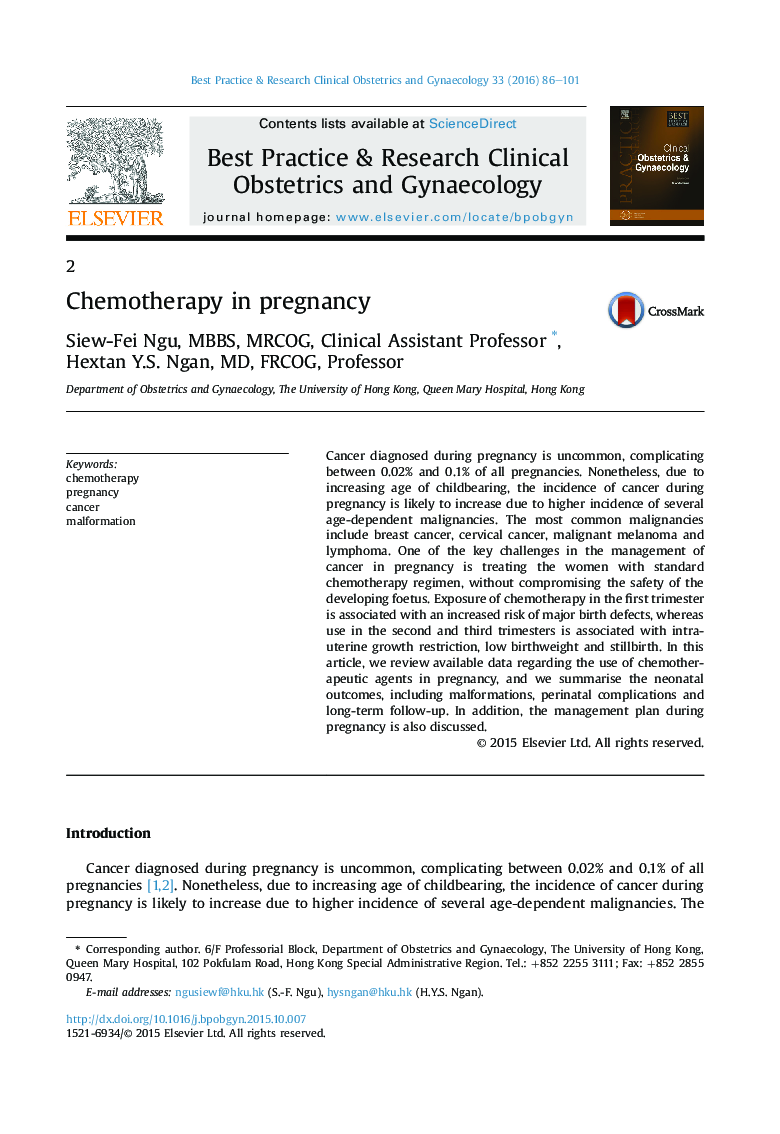| Article ID | Journal | Published Year | Pages | File Type |
|---|---|---|---|---|
| 3907412 | Best Practice & Research Clinical Obstetrics & Gynaecology | 2016 | 16 Pages |
•Pregnant women with cancer should be managed by a multidisciplinary team.•Maternal benefits and foetal adverse effects should be considered before chemotherapy.•Chemotherapy in trimester 1 is associated with congenital malformations.•Chemotherapy in trimesters 2 and 3 is associated with lower birthweight.•Delivery should be delayed for 2–3 weeks following administration of chemotherapy.
Cancer diagnosed during pregnancy is uncommon, complicating between 0.02% and 0.1% of all pregnancies. Nonetheless, due to increasing age of childbearing, the incidence of cancer during pregnancy is likely to increase due to higher incidence of several age-dependent malignancies. The most common malignancies include breast cancer, cervical cancer, malignant melanoma and lymphoma. One of the key challenges in the management of cancer in pregnancy is treating the women with standard chemotherapy regimen, without compromising the safety of the developing foetus. Exposure of chemotherapy in the first trimester is associated with an increased risk of major birth defects, whereas use in the second and third trimesters is associated with intrauterine growth restriction, low birthweight and stillbirth. In this article, we review available data regarding the use of chemotherapeutic agents in pregnancy, and we summarise the neonatal outcomes, including malformations, perinatal complications and long-term follow-up. In addition, the management plan during pregnancy is also discussed.
